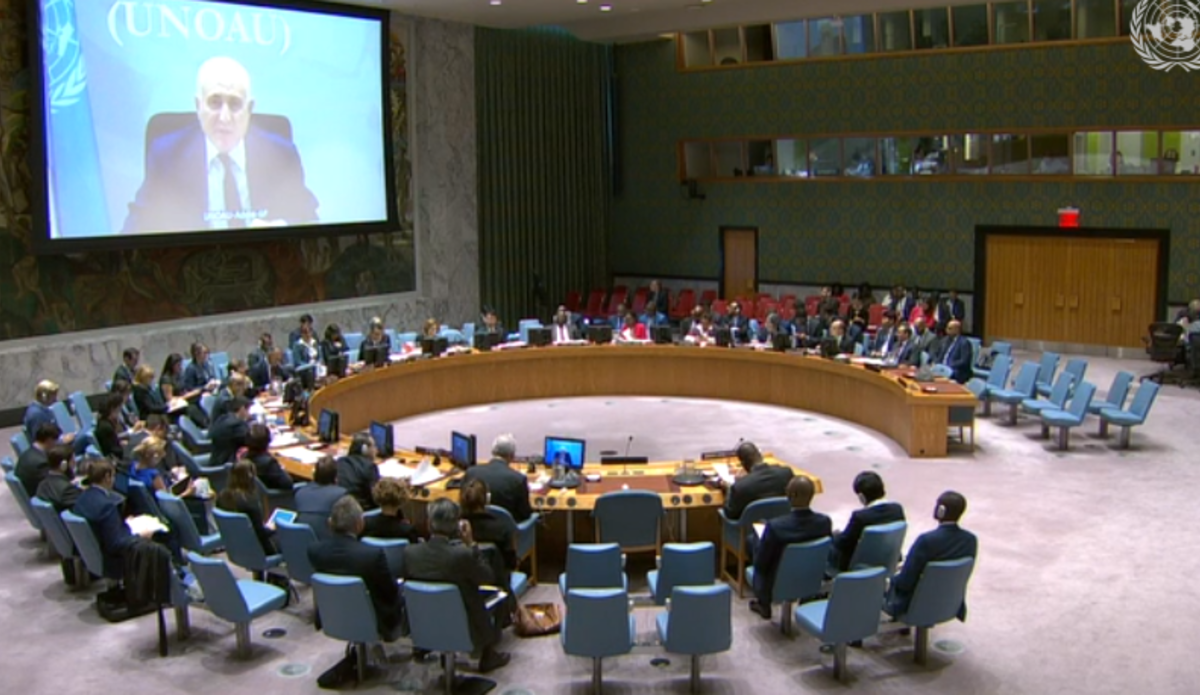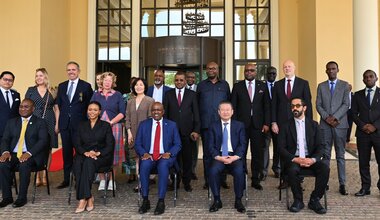Outstanding Issues Must Be Resolved Before D.R. Congo Elections, Said Djinnit Tells Security Council [A report from the UN Security Council]
New York, 11 October 2018 - Said Djinnit, Special Envoy for the Great Lakes, presented the recent report of the Secretary General on implementation of the Peace, Security and Cooperation Framework for the Democratic Republic of the Congo and the region (document S/2018/882) covering the period 1 March to 31 August. Recalling that a meeting of the Framework’s Regional Oversight Mechanism concluded in Kampala, Uganda, on 8 October, he said insecurity in eastern Democratic Republic of the Congo persists due to the Allied Democratic Forces (ADF) members and those belonging to the Democratic Forces for the Liberation of Rwanda (FDLR), former 23 March Movement (M23) fighters, some Burundian elements and local armed groups. Allegations of cross-border interferences continue to be made, and the activities of those groups also fuel mistrust among the region’s countries while threatening peace and security, he said.
Spotlighting the need to strengthen MONUSCO’s Force Intervention Brigade, he said the Mission and the Department of Peacekeeping Operations began to the implement the recommendations contained in a report emanating from the recent Southern African Development Community (SADC) joint assessment mission to eastern Democratic Republic of the Congo. On the repatriation of disarmed combatants, he said sustained efforts are being exerted through the reactivation of the Follow-up Mechanism, and they are yielding some results. A total of 41 persons have been repatriated to their countries of origin, including five former FDLR combatants and 14 ex-M23 combatants. “While these results may be modest, what is of importance is the fact that the Follow-up Mechanism has created a positive dynamic of cooperation between the concerned countries,” he said.
Pledging to continue to work in the same spirit of cooperation, he went on to outline efforts to strengthen the bonds of friendship and cooperation between core countries of the region. Recalling his previous statements to the Council on the need to address persistent mistrust among the Democratic Republic of the Congo, Burundi, Rwanda and Uganda, he described initiatives intended to promote frank dialogue among their leaders in order to resolve differences and address issues that could jeopardize good relations and cooperation. They include a meeting during which President Yoweri Museveni of Uganda took over as Chair of the Regional Oversight Mechanism from President Denis Sassou Nguesso of Congo.
Outlining efforts to support peaceful, credible and inclusive electoral political processes in the region, he said the situations in the Democratic Republic of the Congo, the Central African Republic and South Sudan continue to contribute to instability in the region. Underlining the importance of peaceful and credible elections, particularly in the Democratic Republic of the Congo, he said efforts have focused on mobilizing concerted regional and international support for implementation of the 31 December 2016 political agreement and garnering strong regional support for the elections scheduled for 23 December 2018. Other activities include efforts to address the persistent differences between the Government and opposition in Burundi, supporting the inter-Burundian dialogue, and encouraging greater commitment to inclusive dialogue and political processes that engage women, youth and civil society throughout the region.
On the root causes of conflict in the region, he said that his Office is focused on fighting impunity and addressing protracted displacement, as well as supporting initiatives to address the illicit exploitation of and trade in natural resources. “Without justice and respect for fundamental rights and freedoms of the people no peace will be sustained,” he stressed. Efforts therefore continue towards realizing the Great Lakes Judicial Cooperation Network. He added that his Office — alongside the Office of the United Nations High Commissioner for Refugees (UNHCR), Intergovernmental Authority on Development (IGAD) and other partners – continues to promote durable solutions for protracted displacement in the cases of refugees from Burundi, the Democratic Republic of the Congo and Rwanda, whose presence contributes to mistrust and places a high burden on host communities.
 UN
UN





